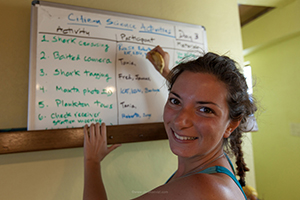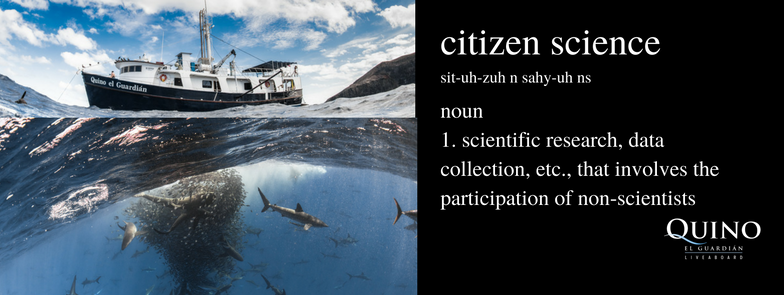
DIVING WITH A PURPOSE
Quino el Guardian
Citizen Scientist Trip
Hammerhead Tagging Project
Revillagigedo Islands
December 2016
I met Dora Sierra, owner of the Rocio Del Mar Liveaboard Dive Boat, a few years ago. A popular dive magazine sent me to write an article and take pictures of her boat that she proudly operates in some of Mexico´s most magical waters. I found myself very impressed by the quality of service Dora and her crew work diligently to deliver to her divers on every trip. I remember she mentioned to me about her latest adventure which was redesigning another liveaboard, “Quino El Guardian”. The Quino was to be a vessel specifically built not only for scuba diving but also for scientific research and education. I became very interested in her idea especially during these times when our oceans face grave danger due to the devastation we humans are imposing around the world.
If we want to protect the areas of the ocean that are vital to countless living animals, we need data about an area and the individual species that depend on these ecosystems for their survival. Marine scientists devote their lives to gathering this data but they need boats, equipment, and support to get to these often-remote locations.
On the other hand, we, as members of the diving and underwater photography community, regularly travel to these destinations, but usually know very little about the lives of the animals we so cherish to encounter. And because we don’t know, we not only do little to protect and preserve these ecosystems but may worsen the situation with poor diving practices that damage the corals and overstress the marine life we encounter.
DIVING WITH A PURPOSE
The "Quino El Guardian" with its Citizen Science Program was designed to create a solution in which everyone benefits; the scientists, the divers, and the ocean. Scientists benefit by having access to an amazing boat and crew that gets them to where they need to be and the eager divers to help with their research. The divers benefit from the opportunity to learn about the ecosystem first-hand from leading scientists as well as the satisfaction to be doing something that helps protect what they love, in this case, the ocean and all its beautiful marine life. They also help protect these areas by creating awareness with the images and stories they will share with friends and family and these stories will be one of conservation. The ocean benefits by creating more conscientious divers with a heightened respect for these vital areas of the world. It also enables scientists to collect that needed data to help further conservation efforts.
Science, investigation, education, conservation - these are the main areas of interest during these trips. In the words of Dora, "Citizen Science is a program where divers, by meeting and working hand in hand with scientists, not only get to dive in amazing places with fewer divers, they also get to participate in the conservation and preservation of these incredible destinations. The only prerequisites to participate in this program are to be a certified diver and to have an open mind and the willingness to learn alongside world-renown experts like James Ketchum and Robert Rubin. Without the Quino El Guardian, scientists wouldn’t have a method to get to remote locations like the Revillagigedo Islands."
The areas chosen for these projects are the last frontiers - they are the most pristine places on earth with an urgency to be protected. Through programs like this, we are making sure we are doing the best we can at making a difference.
HAMMERHEAD TAGGING PROJECT
In December 2016, I had the opportunity to participate in one of these trips. It was multi-faceted with the primary goal of tagging hammerhead sharks to understand their movement patterns, shark and manta identification to determine their abundance and diversity, and taking microplastic and zooplankton samples to determine the effect of these pollutants on mantas. The scientific team was lead by Dr. James Ketchum, who is cofounder of Pelagios Kakunjá, a Mexican non-profit organization that seeks to conserve sharks and pelagic species by understanding their movements, migratory patterns, and population dynamics in the Mexican Pacific. He has been studying sharks and migratory pelagic species since 1996, holds a Ph.D. in Ecology from UC Davis and his publications about hammerheads and whale sharks constitute pioneering work in México and Ecuador.
Also on the team was Fred Buyle, a Belgian free diving champion, and photographer, co-founder of AIDA who, after his achievements as a professional athlete, was drawn organically into photography and involvement with leading scientists and conservationists around the world. Scientists needed his skills to document and tag hammerheads sharks which are very shy and hard to approach especially while scuba diving. He considers himself, “Just the link between the scientist and the animal” and does this as volunteer work. In addition, Fred documents the entire process on these trips and gives all this material to the scientist to help them with their communication strategies, so they can promote their conservation work.
The third member of the scientific team was Master in Science, Tania Pelamati, who earned a degree in Biology at the University of Milan and a master in Marine Biology at Universitá Politecnica delle Marche, Italy. She is part of Pelagios Kakunjá and collaborates in many projects. Her specific area of interest is the study of emergent pollutants affecting the marine environment and the effect of plastics on manta rays.
This was an impressive group of people to spend 10 days aboard a liveaboard and it was as awesome as it sounds! During this time, they all gave very interesting presentations about their work and the animals with which we were diving. The other divers and I learned first hand how to tag a shark, take microplastic and zooplankton samples, how-to photo ID sharks and mantas, learned about shark biology and ecology, and in general assisted the scientists in their fieldwork, which eventually will help in the conservation of this amazing place and incredible animals.
In the words of Jorge, another fellow diver on the trip who was a very experienced diver and dive store owner from Ensenada, México, "Citizen Science trips are a great idea, because it´s not only diving, we learn about the biology of the animals and how to protect them. Myths like sharks being aggressive or that a giant manta is going to attack me like the Crocodile Hunter are debunked". Another participant, Roberto, said, “It´s a great bonus to the trip because you learn while having fun and experiencing the adventure”, and Ralph, a young photographer from the US, explained that he learned a lot more and it made the dives far more interesting while interacting with everyone with a goal that is science-based.
Talk about diving with a purpose! And all this at no extra cost for us! On the contrary, I felt I was receiving so much more for my money than just a regular dive trip especially the feeling of helping scientists to protect these animals and ecosystems that I love so much. For me, Citizen Science is the future of diving.

Learn more by visiting these websites:
www.pelagioskakunja.org
whc.unesco.org/en/list/1510
Photo Gallery



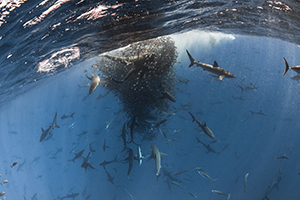
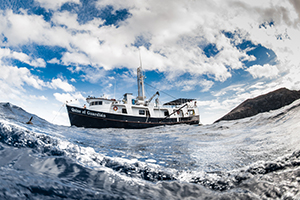
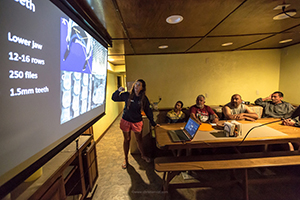
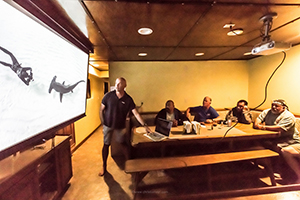
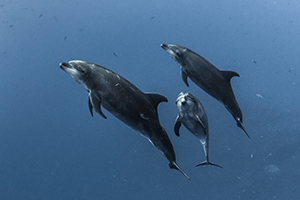
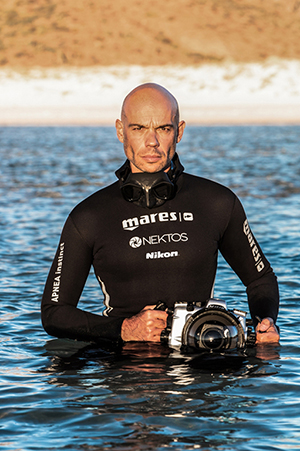
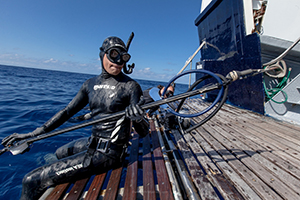
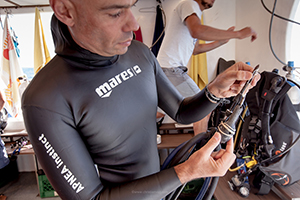
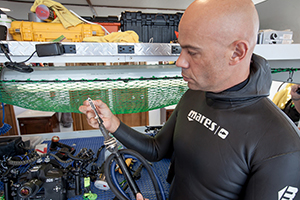
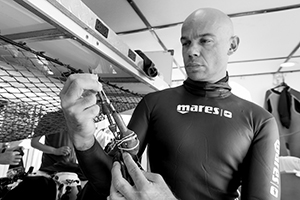
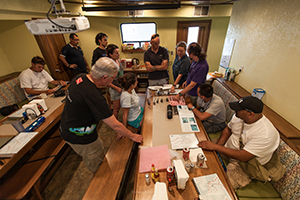
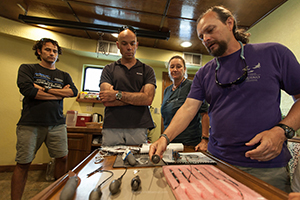
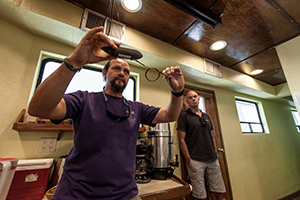
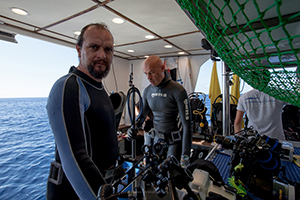
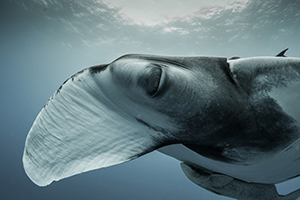
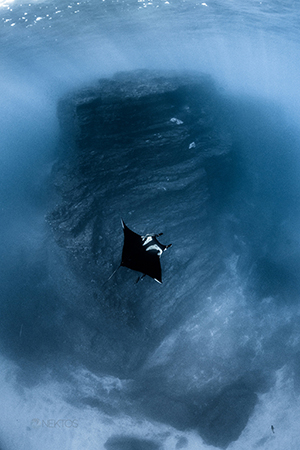
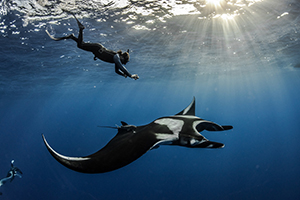
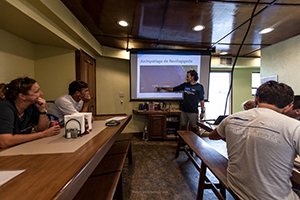
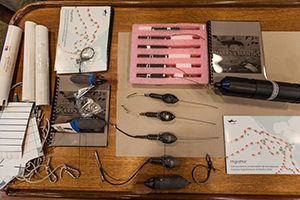
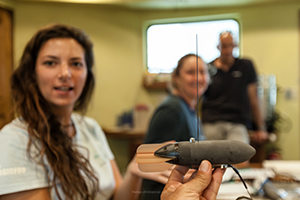
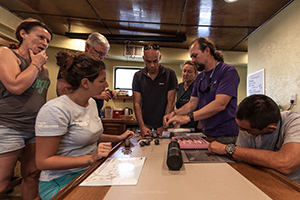
.jpg)
.jpg)
.jpg)
.jpg)
.jpg)
.jpg)
.jpg)
.jpg)
.jpg)
.jpg)
.jpg)
.jpg)
.jpg)
.jpg)
.jpg)
.jpg)
.jpg)
.jpg)
.jpg)
.jpg)
.jpg)
.jpg)
.jpg)
.jpg)
.jpg)
.jpg)
.jpg)
.jpg)
.jpg)
.jpg)
.jpg)
.jpg)
.jpg)
.jpg)
.jpg)
.jpg)
.jpg)
.jpg)
.jpg)
.jpg)
.jpg)
.jpg)
.jpg)
.jpg)
.jpg)
.jpg)
.jpg)
.jpg)
.jpg)
.jpg)
.jpg)
